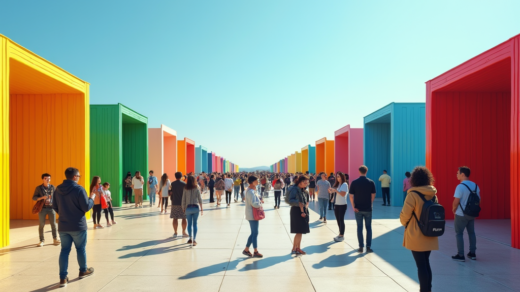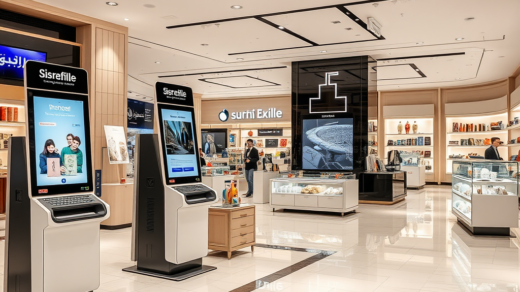Dubai’s real estate market offers a plethora of business opportunities that captivate investors from around the globe. With its rapid urbanization, luxurious developments, and strategic location, the city stands as a beacon for those seeking to enter or expand their footprint in real estate. Whether you’re considering property investment, real estate development, or property management, Dubai’s vibrant market provides avenues for profitability and growth. This article delves into the key opportunities within Dubai’s real estate sector while providing insights on how to navigate this dynamic landscape effectively.
The Thriving Property Market in Dubai

One of the most significant factors contributing to the appeal of the real estate market in Dubai is its impressive growth trajectory. The city has continually evolved into a global hub for business and tourism, attracting millions of visitors each year. This influx creates a sustainable demand for various real estate options, from luxury villas to high-rise apartments and commercial spaces. Key elements fueling this demand include:
- Diverse Investment Opportunities: With a variety of property types, including residential, commercial, retail, and hospitality, investors have multiple avenues to explore based on their interests and financial goals.
- Regulatory Framework: The UAE government has implemented various laws and regulations to encourage foreign investments in the real estate sector, making it easier for non-residents to own property.
- Increased Tourism: Dubai’s status as a tourist magnet results in consistent rental income opportunities through short-term vacation rentals and long-term leasing.
- Expo 2020 and Beyond: The ongoing developments tied to Expo 2020 have revitalized the real estate landscape, creating new growth areas and increasing property values.
Types of Real Estate Investments in Dubai

Investors looking at real estate opportunities in Dubai have several options, each catering to different objectives and investment strategies. The predominant types of investments include:
- Residential Properties: This includes apartments, villas, and townhouses. The rising population and expatriate community ensure a healthy demand.
- Commercial Real Estate: Office spaces, retail outlets, and warehouses are prime investments for those seeking long-term returns in a growing economy.
- Off-plan Properties: Purchasing properties before they are built can often provide investors with significant capital appreciation.
- Real Estate Investment Trusts (REITs): For those who prefer a more hands-off approach, investing in REITs can be an excellent way to gain exposure to the real estate market without direct ownership.
The real estate sector in Dubai is not only about investment; it is also about building relationships. Networking is crucial for anyone looking to thrive in this competitive market. Establishing connections with real estate agents, developers, and other investors can provide invaluable insights and assistance. Consider attending various property expos, seminars, and workshops that occur throughout the year. Joining real estate forums and online groups can also widen your circle. Collaborative opportunities can lead to joint ventures or partnerships, leveraging mutual resources for enhanced success in property investment and sales.
The Role of Technology in Dubai Real Estate
In recent years, technology has transformed how real estate is bought, sold, and managed. In Dubai, innovative solutions are fostering efficiency and improving the customer experience. From virtual tours to blockchain transactions, here are some technological advancements shaping the industry:
- Virtual Reality (VR): Enables potential buyers to experience properties remotely, providing convenience and saving time.
- Online Property Platforms: Websites and apps facilitate ease of access and transparent communication between buyers, sellers, and agents.
- Blockchain technology: Streamlines property transactions and enhances security, offering an immutable record of ownership.
- Smart Home Technology: Increasingly incorporated into new developments, these features attract buyers seeking convenience and modern living standards.
Conclusion
Dubai’s real estate landscape presents numerous opportunities for investors and entrepreneurs willing to navigate its vibrant market. With its diverse property types, favorable regulatory environment, and technological advancements, there has never been a better time to explore business prospects in this dynamic city. From residential to commercial and everything in between, the potential for lucrative returns is significant, making Dubai a prime destination for real estate investments. Understanding market trends and cultivating valuable relationships are essential components for anyone looking to succeed in such a competitive business environment.
Frequently Asked Questions
1. What is the minimum investment required for real estate in Dubai?
The minimum investment can vary significantly based on property type and location, but typically it starts at around AED 1 million for residential properties.
2. Are there any restrictions on foreign ownership of property in Dubai?
Foreigners can own property in designated freehold areas without any restrictions, while leasehold options are also available in other areas, generally lasting up to 99 years.
3. How can I finance my property investment in Dubai?
Investors can finance their property purchases through local banks that offer mortgage plans. Several institutions provide financing options for expatriates as well.
4. Is the real estate market in Dubai stable?
Generally, Dubai’s real estate market is resilient, yet it can be subject to fluctuations. Careful research and understanding of market trends are essential in mitigating risks.
5. What is the process of buying property in Dubai?
The process involves selecting the property, obtaining a no-objection certificate, and securing financing if needed. In addition, it typically requires a lawyer to facilitate the legal aspects of the purchase.


